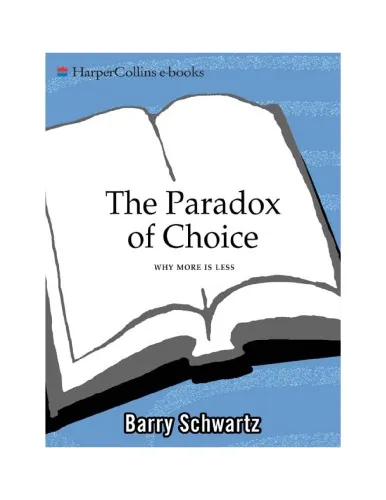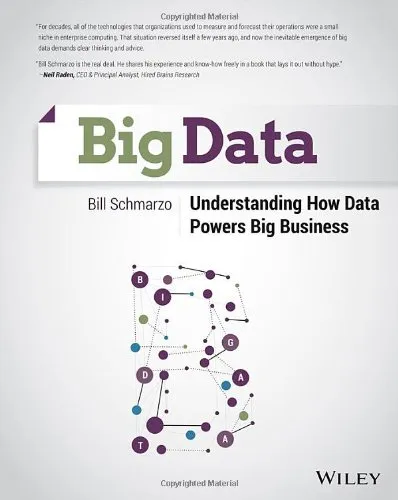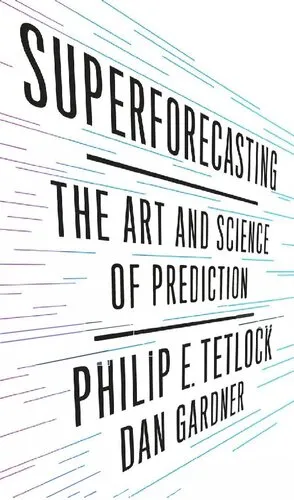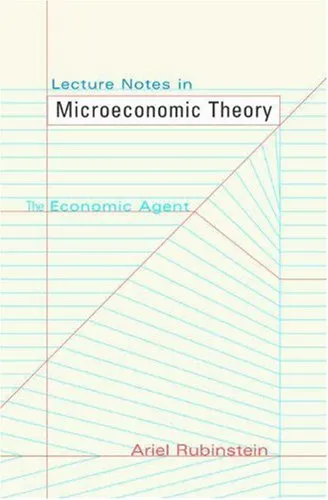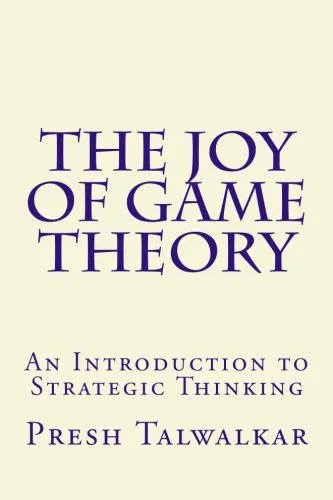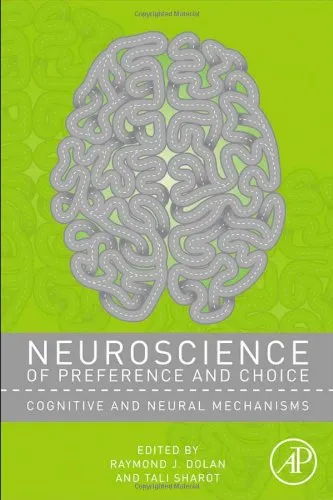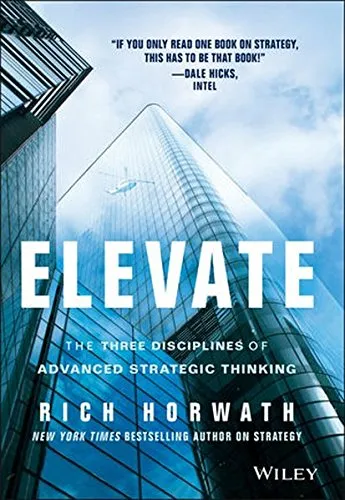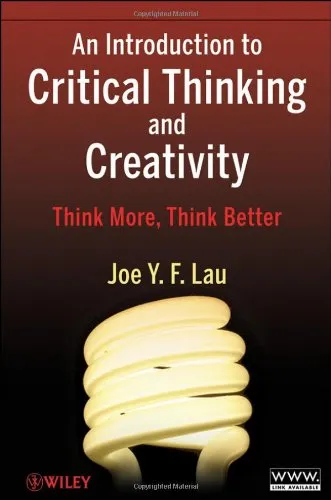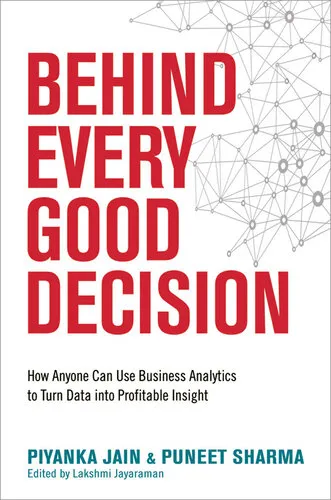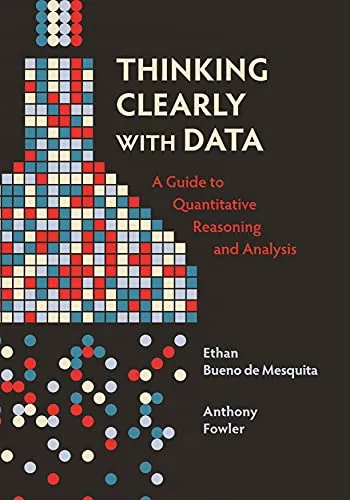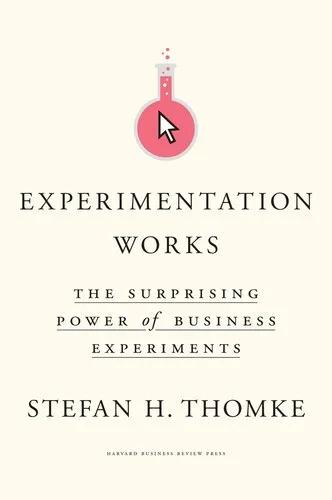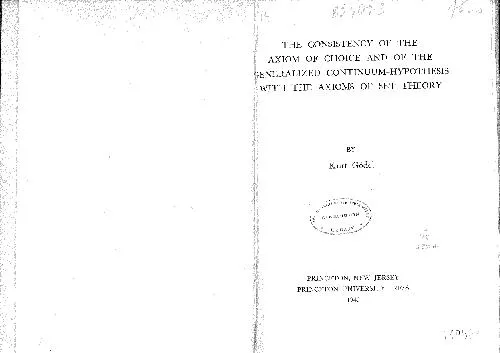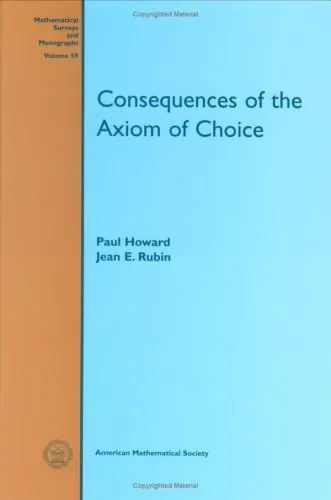The Paradox of Choice: Why More Is Less.
4.0
بر اساس نظر کاربران

شما میتونید سوالاتتون در باره کتاب رو از هوش مصنوعیش بعد از ورود بپرسید
هر دانلود یا پرسش از هوش مصنوعی 2 امتیاز لازم دارد، برای بدست آوردن امتیاز رایگان، به صفحه ی راهنمای امتیازات سر بزنید و یک سری کار ارزشمند انجام بدینکتاب های مرتبط:
معرفی کامل کتاب 'The Paradox of Choice: Why More Is Less'
کتاب 'The Paradox of Choice: Why More Is Less' نوشته بری شوارتز یکی از آثار برجسته در زمینه روانشناسی اجتماعی و تصمیمگیری است. این کتاب به بررسی این موضوع میپردازد که چگونه انتخابهای بیش از اندازه میتوانند به جای ایجاد شادی و رضایت، منجر به اضطراب و استرس شوند. شوارتز به وضوح شرح میدهد که چرا، علیرغم فراوانی گزینهها، انسانها اغلب احساس نارضایتی میکنند.
خلاصه مفصل کتاب
کتاب 'The Paradox of Choice' با نقدی بر وضعیت کنونی جوامع مدرن آغاز میشود، جایی که مصرفگرایی و گزینههای بیپایان به عناصر مرکزی زندگی روزمره تبدیل شدهاند. شوارتز استدلال میکند که افزایش انتخابها لزوماً به بهبود وضعیت انسان نمیانجامد. او ذکر میکند که زمانی که با گزینههای بسیار زیادی روبهرو میشویم، فرایند تصمیمگیری ما پیچیدهتر و استرسزاتر میشود.
یکی از نمونههای مطرح شده در کتاب، خرید ساده از فروشگاه مواد غذایی است که به خاطر تعداد زیاد محصولات، ممکن است به یک تجربه خسته کننده تبدیل شود. شوارتز نشان میدهد که چگونه این مسئله در تمام ابعاد زندگی ما گسترش پیدا کرده است، از خرید لباس و وسایل الکترونیکی تا انتخابهای شغلی و سبک زندگی.
نکات کلیدی
- افزایش گزینهها میتواند منجر به استرس و نارضایتی شود.
- «خریدارانی که به دنبال گزینههای ایدهآل هستند» در مقایسه با «خریدارانی که به انتخاب کافی رضایت میدهند» اغلب ناخشنودترند.
- ایجاد تعادل بین آزادی انتخاب و پیچیدگی در تصمیمگیری ضروری است.
- درک بهتر از محدودیتها و گزینش آگاهانه میتواند منجر به زندگی شادتری شود.
جملات مشهور از کتاب
«آزادی در انتخاب بدون تردید یکی از اصول دموکراسی است، اما بیش از حد بودنش میتواند به دشمن تبدیل شود.»
«بعضی اوقات، کمتر انتخاب کردن میتواند ما را راضیتر کند.»
چرا این کتاب مهم است
کتاب 'The Paradox of Choice' به عنوان یکی از تأثیرگذارترین آثار در تغییر نگرشها و رفتارهای مصرفکنندگان مدرن شناخته شده است. این کتاب به ویژه در عصری که فناوری و اقتصاد جهانی امکان دسترسی به گزینههای بیشتری را فراهم کردهاند، اهمیت ویژهای دارد. شوارتز به خوانندگان کمک میکند تا دیدگاههای تازهای نسبت به قدرت تصمیمگیری و تعادل در انتخاب به دست آورند، که این موضوع میتواند به بهبود کیفیت زندگی و کاهش اضطراب ناشی از تصمیمگیری کمک کند.
Introduction to 'The Paradox of Choice: Why More Is Less'
In the rapidly evolving landscape of modern consumerism, the sheer abundance of choices available to individuals has paradoxically become a burden rather than a blessing. 'The Paradox of Choice: Why More Is Less,' authored by Barry Schwartz, delves into this intriguing contradiction, exploring how having too many options can lead to anxiety, decision fatigue, and consumer dissatisfaction.
Detailed Summary of the Book
The book investigates the psychological impact of having an abundance of choices in today’s world. While choice theoretically allows individuals to tailor decisions to meet personal needs, this benefit quickly becomes overwhelming when choice is excessive. Schwartz explores the theory of 'maximizing' versus 'satisficing' in decision-making. Maximizers seek the best possible outcome, often exhaustively, leading to dissatisfaction and stress, while satisficers aim for a decision that suffices to meet criteria. Schwartz argues that the explosion of choice on aspects of life such as consumer goods, lifestyles, and career paths contributes extensively to increasing consumer anxiety. He suggests that the decision-making process gets burdened by the fear of making the wrong choice and missing out on potential better alternatives. This exploration is complemented by examples and studies that highlight how more choice often doesn't lead to more happiness. Instead, the necessity of making many decisions can drain the joy of what should have been good experiences, leaving individuals less satisfied than expected.
Key Takeaways
- Too many choices can reduce satisfaction: More options can lead individuals to experience decision paralysis and lower satisfaction due to the fear of making the wrong decisions.
- Maximizers vs. satisficers: Understanding different decision-making styles can help tailor approaches to personal and professional choices.
- The importance of setting boundaries: Simplifying life by setting limits on the number of choices can improve well-being.
- Focus on what truly matters: Prioritizing core values over endless options can enhance decision-making clarity and satisfaction.
Famous Quotes from the Book
Barry Schwartz's insightful observations are encapsulated in several memorable quotes from the book:
- "Learning to choose is hard. Learning to choose well is harder. And learning to choose well in a world of unlimited possibilities is harder still, perhaps too hard."
- "Choice is the only thing that matters. No one asks you if you’d rather have more or fewer options, yet we all recognize the overwhelming nature of choice."
- "Satisficers are happier than maximizers because they settle for ‘good enough’ instead of always seeking the best."
Why This Book Matters
The significance of 'The Paradox of Choice' lies in its perspective on modern consumer culture and personal well-being. In a world where people are inundated with limitless options, the book provides a framework to help navigate this overwhelming landscape without succumbing to stress and dissatisfaction. It argues for a mindful approach to decision-making, encouraging readers to understand and manage their psychological responses to choice overload. By highlighting how more is not always better, the book offers practical insights into achieving tranquility and satisfaction in personal and professional lives. The principles discussed are universally applicable, making it relevant across numerous domains, including marketing, personal development, and behavioral psychology.
دانلود رایگان مستقیم
شما میتونید سوالاتتون در باره کتاب رو از هوش مصنوعیش بعد از ورود بپرسید
دسترسی به کتابها از طریق پلتفرمهای قانونی و کتابخانههای عمومی نه تنها از حقوق نویسندگان و ناشران حمایت میکند، بلکه به پایداری فرهنگ کتابخوانی نیز کمک میرساند. پیش از دانلود، لحظهای به بررسی این گزینهها فکر کنید.
این کتاب رو در پلتفرم های دیگه ببینید
WorldCat به شما کمک میکنه تا کتاب ها رو در کتابخانه های سراسر دنیا پیدا کنید
امتیازها، نظرات تخصصی و صحبت ها درباره کتاب را در Goodreads ببینید
کتابهای کمیاب یا دست دوم را در AbeBooks پیدا کنید و بخرید
1426
بازدید4.0
امتیاز0
نظر98%
رضایتنظرات:
4.0
بر اساس 0 نظر کاربران
Questions & Answers
Ask questions about this book or help others by answering
No questions yet. Be the first to ask!
